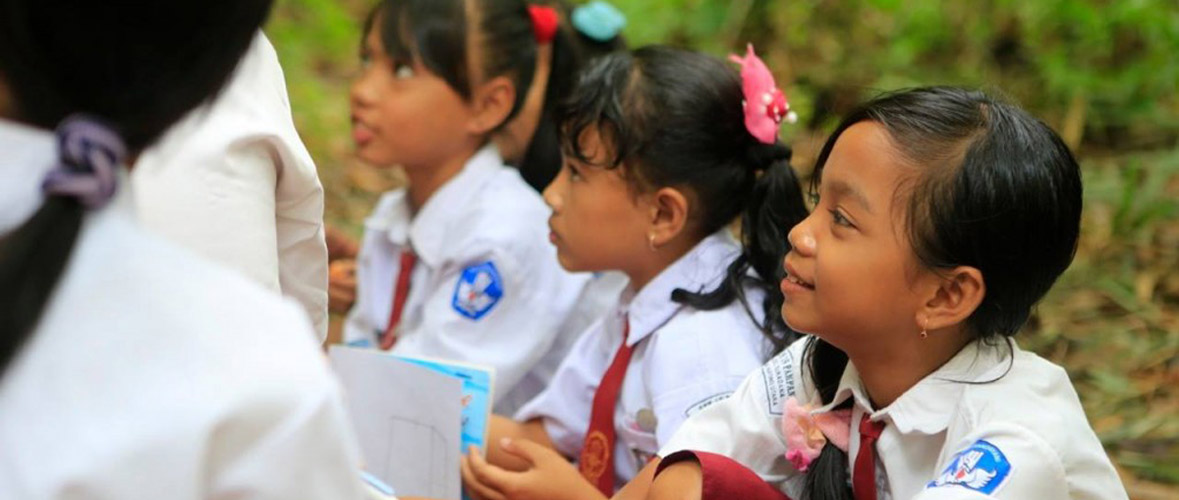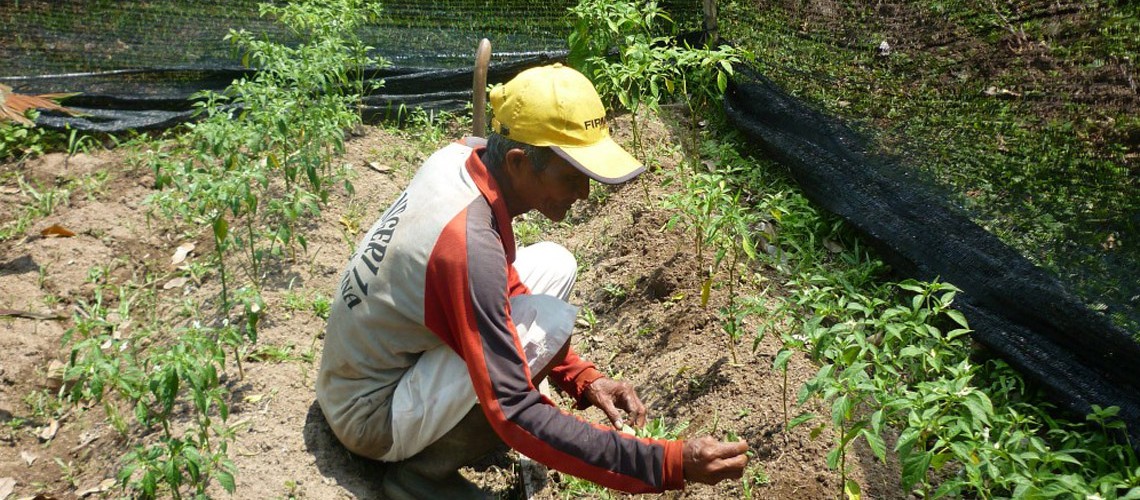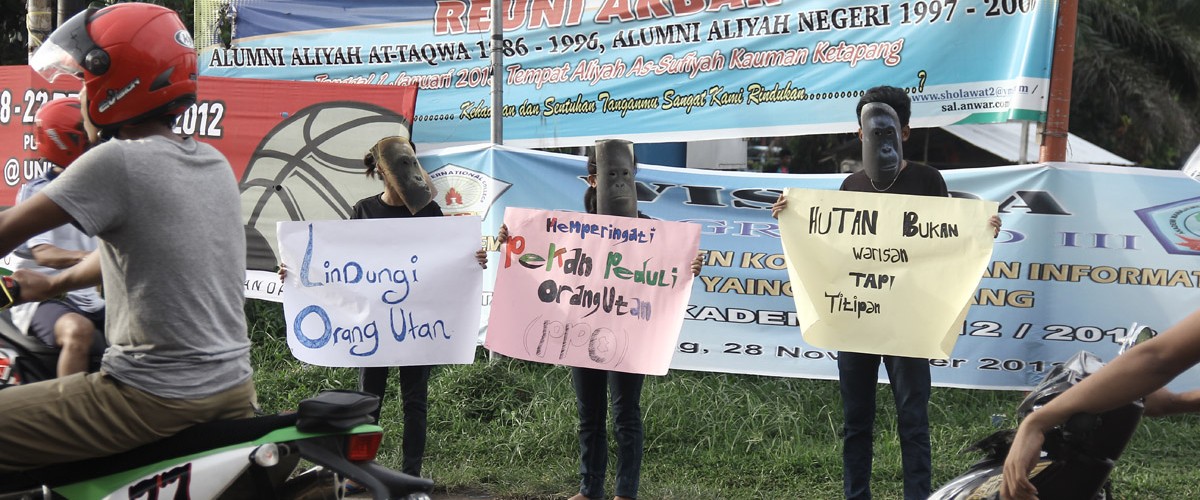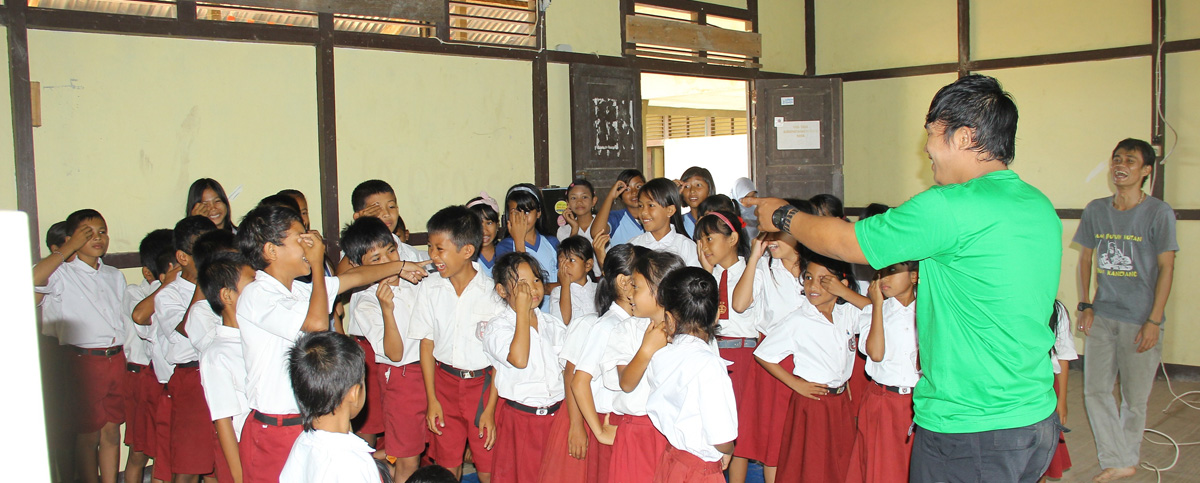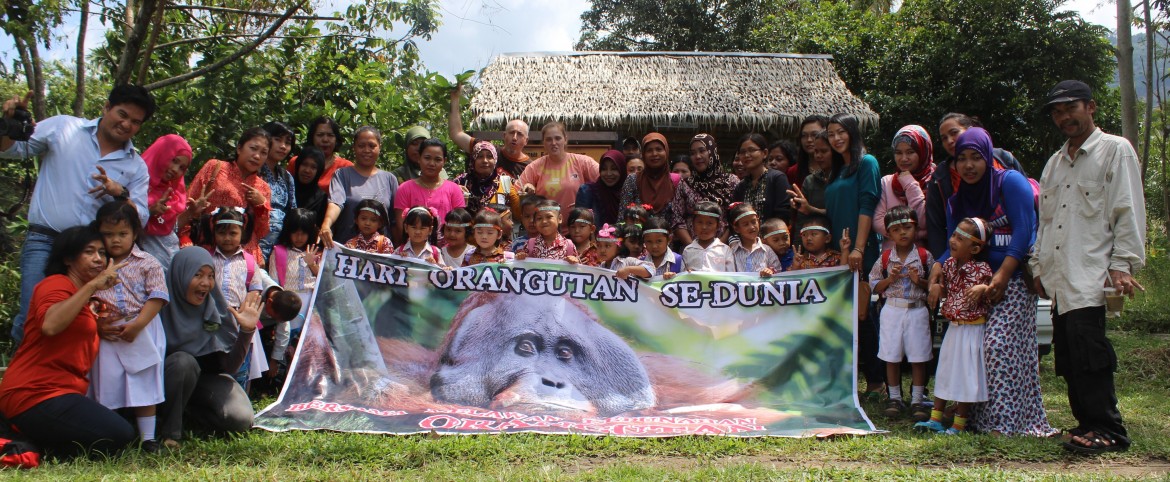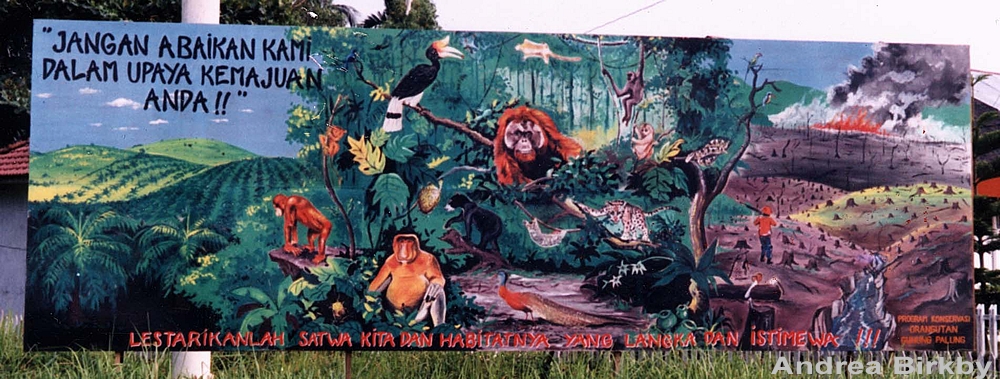By Terri Breeden, GPOCP Program Director
Here at GPOCP we believe in starting environmental education at an early age. This provides youngsters with the basic foundation to understand the impacts of their everyday decisions, which in turn helps foster a life-long commitment towards environmental stewardship. We also work with older students and adults to answer their questions about the environment and the impacts of land clearing and how it affects health and quality of life, for both humans and animals, including orangutans that live in nearby forests.
Unfortunately, waste management is a big problem here in Ketapang and throughout Indonesia. In cities there is somewhat organized trash pick-up, but you can see from the photo below, it is less than ideal with a lot of trash ending up in the streets and local waterways. In more remote villages, there is no trash pick-up, which leads locals to burn their trash. During the dry season, which is quickly approaching, these fires have the potential to escalate out of control and cause catastrophic damage. This month our Education team worked with two junior high schools in Ketapang, educating nearly 250 students about waste management and ways they can help combat the issue.
 |
| The photo on the left shows the state of some of the dumpsters in Ketapang and because of their condition much of the trash ends up in local waterways, as shown on the right. |
We start the delivery and interaction with students with a song, the National Anthem, to bring about a sense of pride and national spirit. This also enlivens the students and prepares them for an interactive session with our Education team. We then continue with a game to educate the students about the different types of primates and animals found here in Borneo, which then leads into a lecture and discussion with the students. Ranti Naruri led the presentation and invited students to ask questions about their knowledge of waste management. She explained how waste can have many negative impacts on health, quality of life, and emphasized ways the students can reduce their use of plastic bags and litter.
 |
| GPOCP Education Team member, Ranti Naruri, giving a lecture to students. |
Towards the end of our visit at the schools, the students were invited to offer their own solutions to waste management. We were excited to hear them come up with concepts such as using reusable water bottles and shopping bags, separating waste into organic and inorganic, and something as simple as throwing garbage in the appropriate place. The students even thought about using organic waste for farming and using non-organic waste to create handicrafts and the simple act of inviting their friends to participate in picking up after themselves and not littering.
Throughout each of the activities, we received a great response from students, teachers and school officials. GPOCP hopes to continue working with these students and making a positive impact in regards to environmental education in their lives and throughout Indonesia.
 |
| Junior high school teacher (second from right) with members of the GPOCP Education Team (left to right) Petrus Kanisus, Hendri Gunawan, Mariamah Achmad, and Ranti Naruri. |
